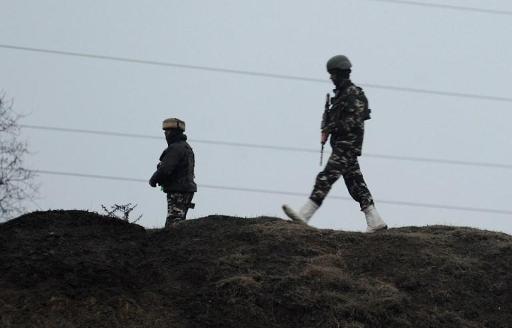The India-administered part of Kashmir is completely isolated from the outside world since the beginning of August after India revoked its autonomous status and shut down its internet and telephone lines.
Tens of thousands of Indian troops have been deployed in the region and put millions of its population under siege.
According to The New York times (17 August), India is a world leader in shutting down the internet to curtail the flow of information and prevent potential protests against its policies. United Nations consider government-ordered shutdowns as a violation of human rights. The shutdown has not only suppressed freedom of media but also resulted in the disruption of vital services and supplies.
Kashmir was even before the latest measures by the Indian government one of the most densely militarized zones in the world following the end of British colonial rule in 1947 and the violent partition of the Indian subcontinent on religious grounds between Hindu India and Muslim Pakistan.
The Muslim-dominated Jammu and Kashmir were acceded to India by its Hindu maharaja according to an Instrument of Accession which guaranteed it some form of autonomy and the prospect of a referendum to determine its final status. But no referendum has ever been held and Kashmir became a frozen conflict with intermittent wars and flare-ups of tension between India and Pakistan.
The human rights situation in Kashmir has been deteriorating in recent years with repeated calls to the EU to become more engaged in the conflict and to the UN Human Rights Council for sending a fact-finding mission to the region. Such a mission would have required the agreement of both governments.
India considers Jammu and Kashmir as integral parts of the country and has opposed an external mission, claiming that the violence has been instigated from across the border.
On 5 August, the Indian parliament revoked unilaterally the articles in its constitution which accorded Jammu and Kashmir their special status and adopted a new act which made them a state directly ruled by Delhi and open for migration from the rest of India.
Asked by The Brussels Times about EU’s reaction, a spokesperson for the European Commission referred to a statement issued by the European External Action Service (EEAS) on 8 August. According to the statement, EU foreign policy chief Federica Mogherini had spoken by phone to the ministers of foreign affairs of India and Pakistan.
In both calls, she underlined the importance of avoiding an escalation of tensions in Kashmir and in the region.
“To this end, dialogue between India and Pakistan through diplomatic channels is crucial. The EU supports a bilateral political solution between India and Pakistan over Kashmir, which remains the only way to solve a long-lasting dispute that causes instability and insecurity in the region.”
While the statement is in line with the EU’s longstanding position to support a reconciliation process between India and Pakistan over Kashmir through dialogue, and to call for the Kashmiri people themselves to be involved in this process, India’s decision to revoke the region’s special status without any consultation with its inhabitants is a dangerous escalation and a challenge to the EU’s foreign policy.
M. Apelblat
The Brussels Times

